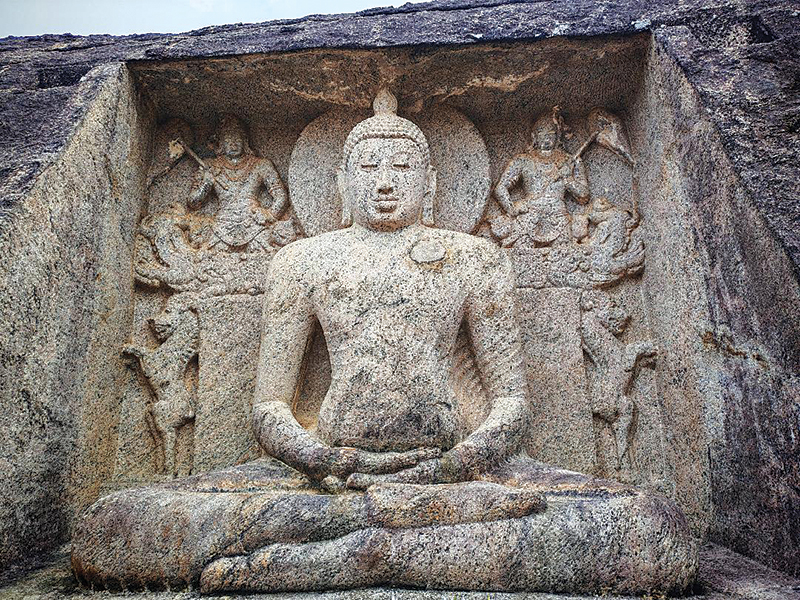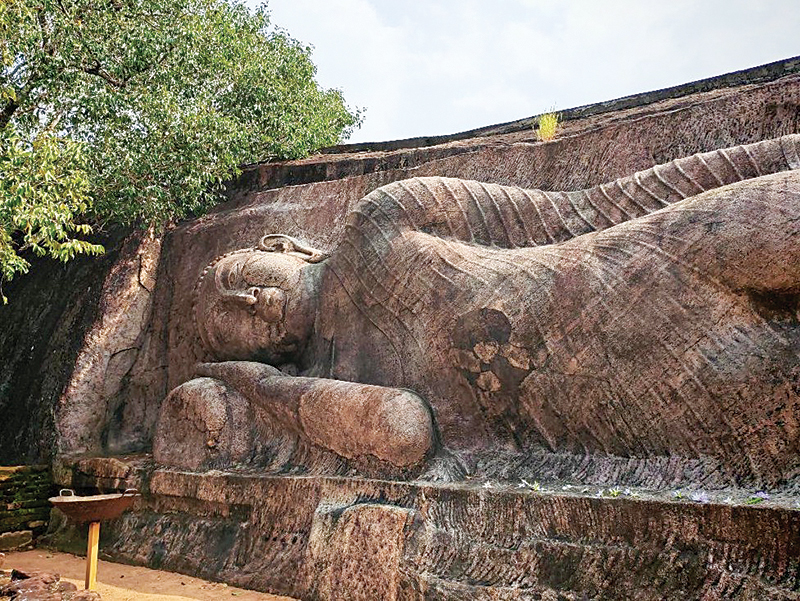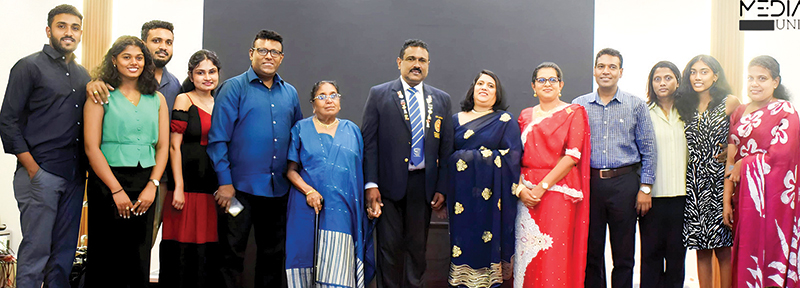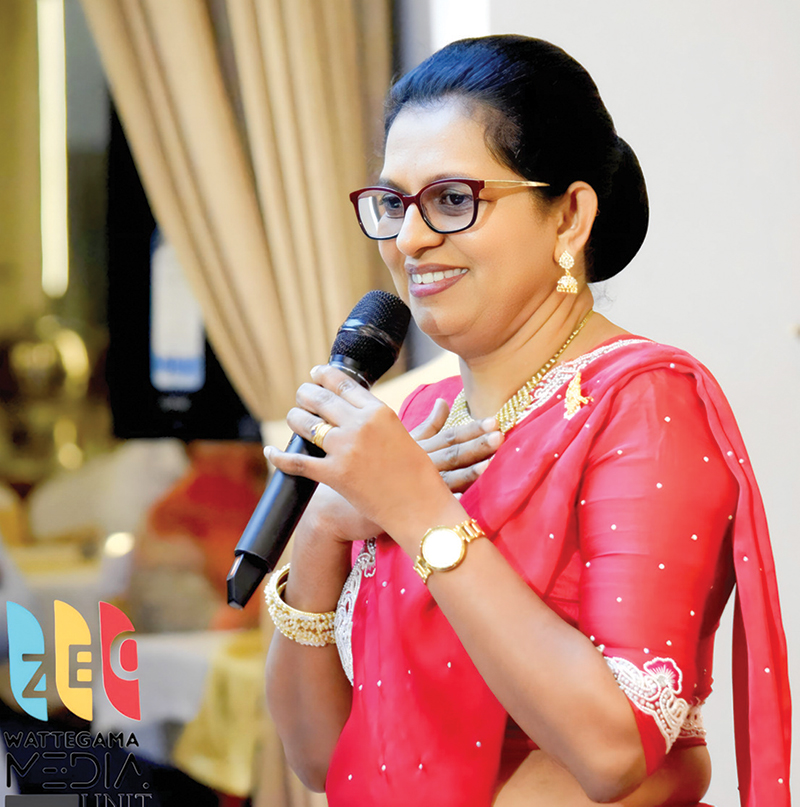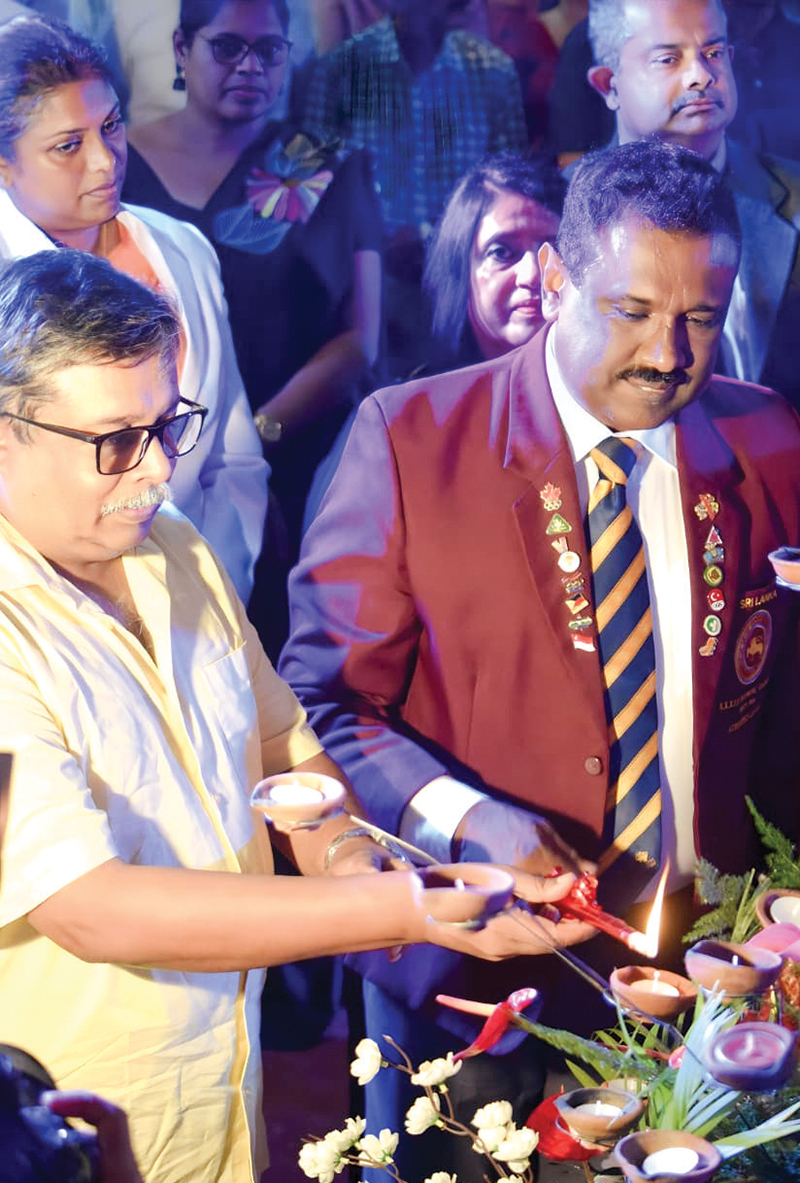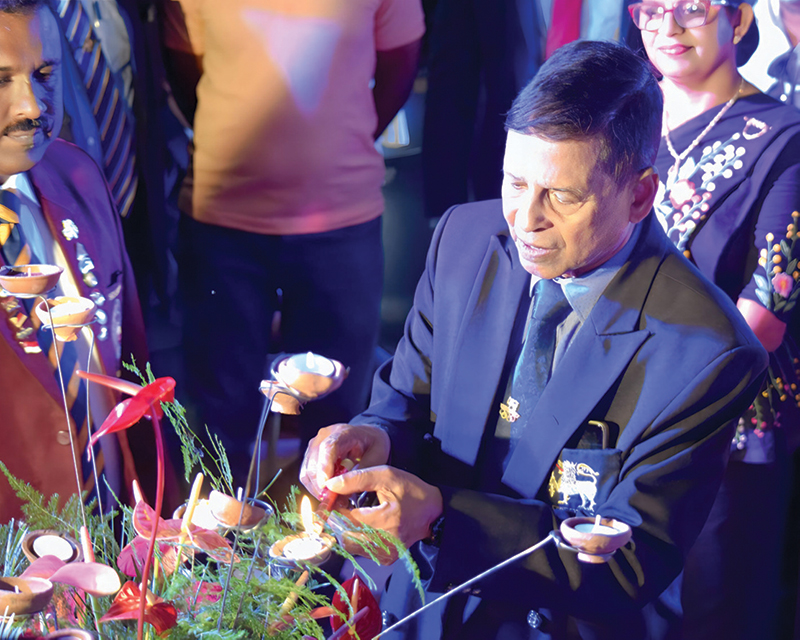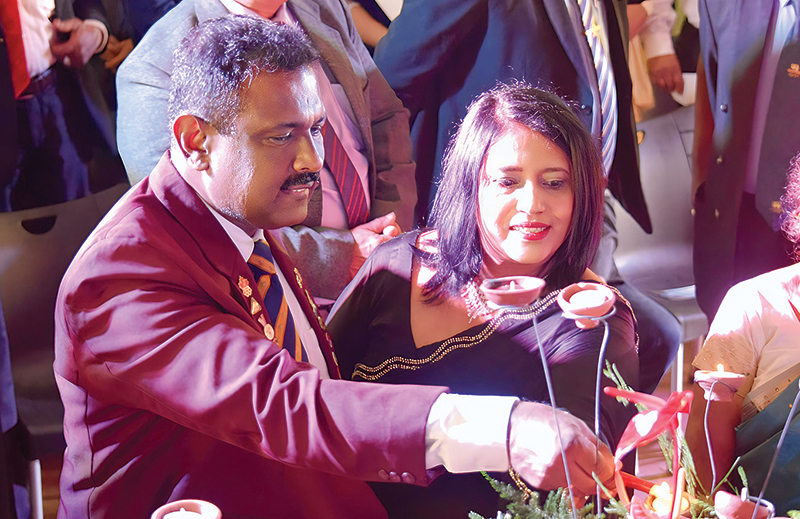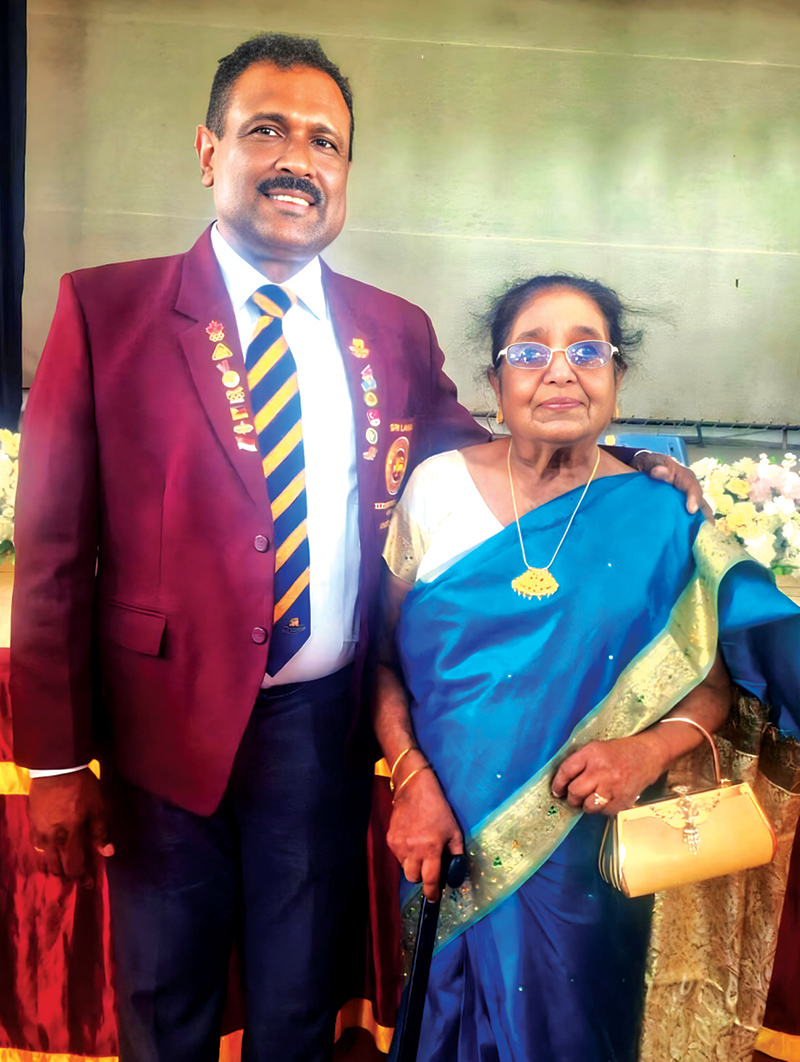Features
Revisiting presidential system of government
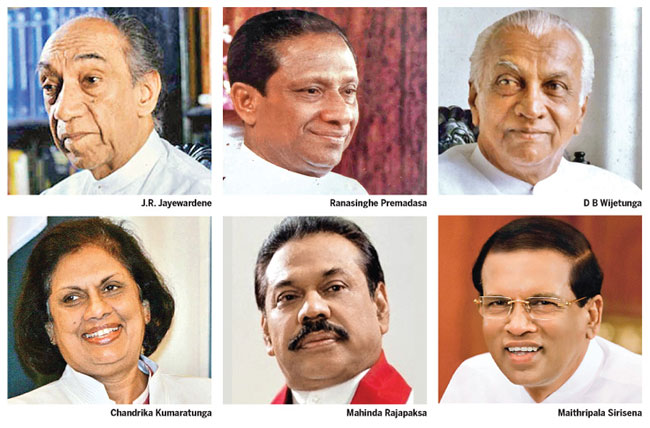
By Neville Ladduwahetty
The government’s announcement that a new Constitution will be unveiled within the next few months is in keeping with one of the ten key policy commitments in the President’s election manifesto. This announcement has encouraged several prominent constitutional experts to express opinions relating to constitutional reforms, perhaps in the hope of influencing the ongoing constitution making process. However, at the fundamental level, all these opinions for governance boil down to a choice essentially between parliamentary or presidential systems with their favoured variations.
At this fundamental level the choice for “We the People” is whether it is in their best interests to grant their sovereign rights to a single body of elected representatives as in Parliamentary systems, or divide them between two separately elected branches of government as in Presidential systems, notwithstanding the fact that the system in Sri Lanka is not strictly Presidential as in the USA, but one that is Semi-Presidential because of the incorporation of Members of Parliament from the Legislature in the Executive branch.
PARLIAMENTARY v. PRESIDENTIAL
In a Parliamentary system, all power in respect of Legislative and Executive powers are exercised by the elected political party or coalition with the majority to form a functioning government. Under such an arrangement, the opportunity to exercise checks and balances by the Legislature over Executive action becomes blurred despite the fact that the Executive with its Cabinet of Ministers is answerable and responsible to Parliament. Furthermore, while the responsibility for formulating Policy relating to a particular subject is supposed to be that of the Minister and administering that Policy is supposed to be the responsibility of the Administrator, the distinctions between them become seamless because administrative decisions involve policy. This blurring of responsibilities gives the Minister the opportunity to involve himself in the Administration causing administrative action to be influenced by politics.
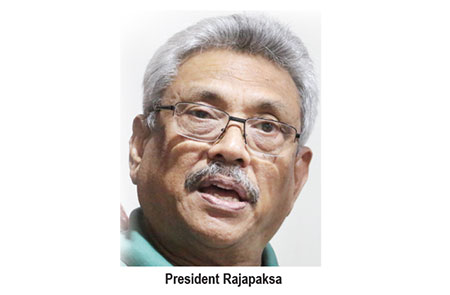 Addressing this issue that is inherent with Cabinet systems, Sir. Ivor Jennings in his book titled “THE CONSTITUTION OF CEYLON” (1949) states: “The Cabinet system implies a division between policy and administration. Administration is the function of paid officials; policy is the function of responsible Ministers. The line between them is often fine, because many administrative decisions involve policy. It is the duty of the official to put before the Minister every decision about which there may be any doubt in terms of policy; but it is equally the duty of the Minister to abstain from interfering where no question of policy is raised” (p. 87).
Addressing this issue that is inherent with Cabinet systems, Sir. Ivor Jennings in his book titled “THE CONSTITUTION OF CEYLON” (1949) states: “The Cabinet system implies a division between policy and administration. Administration is the function of paid officials; policy is the function of responsible Ministers. The line between them is often fine, because many administrative decisions involve policy. It is the duty of the official to put before the Minister every decision about which there may be any doubt in terms of policy; but it is equally the duty of the Minister to abstain from interfering where no question of policy is raised” (p. 87).
Such idyllic arrangements do not exist in real life. This is particularly so, as presently in Sri Lanka when Secretaries to Ministries responsible for Administration are appointed by the President with no reference to the Minister. Therefore, whatever the system, since the performance of Ministries and ultimately the Government depends on the symbiotic relationship between the Minister and the Secretary, it is imperative that the Secretary should be appointed by the appointing authority in consultation with the Minister so that they could work as a team to further the agenda of the Government. Problems associated with this relationship have been the primary cause for poor Executive performance
On the other hand, in a presidential system, Legislative and Executive power of the people are exercised by two separately elected bodies. Thus, for all intents and purposes, there is separation of power between these two branches of government. While this is so in countries such as the USA, where the two branches function and operate separately, it is not so in the Sri Lankan context of the presidential arrangement because the Prime Minister and the Cabinet of Ministers that form an integral component of the President’s Executive are from Parliament.
Such arrangements are referred to as Semi-Presidential. Under such systems too, the blurring of Policy and Administration that exist under Parliamentary arrangements with Cabinet systems continue. Therefore, there is an urgent need to revisit existing arrangements to ensure that arrangements are instituted for the development of Policy and its Administration in a manner that enables the President and the Executive to fulfill their commitments to the People.
REVISITING CURRENT ARRANGEMENTS
As long as the Cabinet system exists as part of the Executive, the difference between the Parliamentary systems that had existed in Sri Lanka e.g., 1972 Constitution, and what exists currently under a Semi-Presidential system, is marginal. For instance, under the 1972 Parliamentary system a nominated President appointed the members of the Cabinet of Ministers presumably on the advice of the Prime Minister. Similarly, the elected President under the current Semi-Presidential system appoints the Cabinet of Ministers on the advice of the Prime Minister. As before, the Cabinet of Ministers is “charged with the direction and control of the Government of the Republic. However, since the People expect the President they elect to exercise their executive power including the defence of Sri Lanka, it is the President as the Head of the Cabinet of Ministers who should be selecting his chosen Ministers of the Cabinet. Furthermore, since it is the President who made certain commitments to the People in his Manifesto, the direction and control of the Government should reflect what he undertook to deliver to the People. The Cabinet of Ministers thus become the President’s team to fulfill his commitments to the People. This perspective should be reflected in the revisited arrangements
The direction and control of the government thus becomes the collective responsibility of the President and his chosen Cabinet. The responsibility of each Minister should then be to develop the Policies relating to the subjects assigned to him as part of the collective responsibility of the Executive. In the development of Policies relating to the assigned subjects, the Minister should be free to engage with anyone who in his opinion could contribute to the process. A draft Policy Paper that would be the outcome of such an exercise should be submitted to the Cabinet for review, comment and approval.
This should be followed by the Secretary to the Ministry as the Chair to determine how to administer the Cabinet approved draft of the Policy. The total package of Policies and Administrative measures should then be submitted to the Cabinet for review and comment so that any amendments could be incorporated into the final policy statement, which them becomes a collective decision of the Cabinet. The lack of attention given to the process of administering Policies is often the cause for failed Policies.
For instance, the Policy of the current Government was to use organic fertilizer and to ban imported chemical fertilizer and pesticides. Under the revisited arrangements, the Minister of Agriculture together with a team selected by the Minister would develop the Policies needed to implement the Policy of using organic fertilizer. The policies so determined would then be submitted by the Minister to the Cabinet for review, comment and approval. Having secured preliminary approval of the Policies, a working group headed by the Secretary to the Ministry of Agriculture should develop the Administrative measures needed to implement the Policies. If at this stage, serious challenges are imposed due to non-availability of material and/or resources to administer the Policy, the administrative process should be revised, or the Policy should be revised to suit capacities. Since such a decision would have far reaching political consequences the decision whether to phase out or forge ahead should be taken collectively by the Cabinet.
If the collective decision is to implement the Policy in stages, the Secretary should develop the administrative arrangements to ensure that the Policy is successfully implemented. On the other hand, if the collective decision of the Cabinet is not to phase out implementing the Policy, it is the responsibility of the Secretary to develop strategies needed to implement the Policy. The total package of Policy and the administrative arrangements needed to implement the Policy should then be submitted to the Cabinet for approval.
The approach suggested above is in keeping with the concept of the Cabinet being collectively responsible for the direction and control of the Government. The revisited approach may appear too complicated. However, the reason why good Policies have failed to meet expectations is because of poor planning and lack of due attention to effective administration. The fact remains that if what is proposed is too cumbersome some alternative has to be developed to ensure that collective decisions are reached, as long as the Cabinet systems remain as part and parcel of the Executive.
RESPONSIBILITIES of PARLIAMENT
The primary responsibility of Parliament is to exercise the Legislative power of the People. Equally important is for Parliament to oversee executive action. In this regard, Articles 42 and 43 (1) of the 20th Amendment to the Constitution state: 42. The President shall be responsible to Parliament for the due exercise, performance and discharge of his powers, duties and functions under the Constitution and any written law, including the law for the time being relating topublic security.43. (1) There shall be a Cabinet of Ministers charged with the direction and control of the Government of the Republic, which shall be collectively responsible and answerable to Parliament.
Apart from the question of how a President directly elected by the People could be responsible to another organ of Government – the Parliament, also directly elected by the same People, the fact is that the President and the Cabinet of Ministers are collectively responsible to Parliament means that Parliament is Constitutionally entitled to review Executive action. Although the Constitution does not spell out how Parliament is to fulfill this specific responsibility, the Standing Orders of Parliament contain provisions under Sectoral Oversight Committees and Ministerial Consultative Committees that could be modified to serve as a mechanism to oversee Executive action of the President, and the collective and individual actions of the Cabinet and its Ministers. Since the focus of these Committees is to address issues relating to Legislature, they should be revised, expanded and strengthened to oversee Executive action and incorporated in a revisited Constitution.
INDEPENDENT COMMISSIONS
Appointments to Independent Commissions were made by the President on the recommendations of the Constitutional Council under the 19th Amendment and now by the Parliamentary Council under the 20th Amendment. The Constitutional Council consisted of ten members of which seven were from Parliament. The present Parliamentary Council consists of five members and all of them are from Parliament.
The question that arises is how realistic is it to expect Councils made up of either a majority or its entirety from Parliament, to be objective enough in the appointment of Independent Commissions. If the intention is to create an independent and productive Public Service, the arrangements that exist today are a far cry from what were intended, because what Sri Lanka has inexorably and unwittingly ended up is to politicize the Public Service and weaken its motivation for effective administration. The temptation to politicize was in the misguided hope of the political establishment that administering policies with hand-picked officers who would personally be loyal to them would enable them to achieve their objectives. The consequence of this trend was to demoralize the rest to a point of believing that without political patronage there is no future for them in the Public Service. In such a background, complaining about them would not get the political establishment its desired outcomes. Instead, they should realize that it is in their own interest to have an effective Public Service without which their policies would not be implemented. Therefore, it is imperative that the prevailing trend is reversed.
To do so the arrangements instituted to set-up Independent Commissions should be scrapped, and the existing Presidential Council should focus on setting up an effective Public Service Commission vested with executive powers of appointment, promotion, transfer, disciplinary control, dismissal of public officers including addressing of grievances of the public. The fact that the 20th Amendment has deleted The Audit Service Commission and The National Procurement Commissions that had existed in the 19th Amendment, attest to the fact that the functions of these Commissions could be transferred to the Public Service Commission. A further development is that the Police Commission only handles public grievances. The rest of the functions of the Police Department have already been transferred to the Public Service Commission. In keeping with this trend, other Commissions too should be scrapped except for the Human Rights and Judicial Commissions. An effective Public Service Commission means that even the role of the Ombudsman becomes superfluous, because it should be possible for the Commission with expanded executive power to address grievances of the Public more effectively, since grievances of the public are invariably due to dereliction of duties of public servants.
CONCLUSION
The need for a new Constitution is based on the premise that the Constitution in its present form is a fetter to the progress and development of Sri Lanka. How valid is this perception? The material presented above, if viewed objectively, demonstrates that the real impediment to progress and development is the form and manner in which the Constitution operates.
The Constitution in its present form is not a true Presidential system that is based on the separation of power as in the United States. Instead, it is a Semi-Presidential system because of the inclusion of members of Parliament in the Executive Branch as members of the Cabinet. What is proposed herein is to retain the existing structure for practical reasons, but amend the form and manner in which it functions so that predetermined Executive Policies could be effectively administered.
This approach is predicated on the premise that the reason for poor performance is because of the mismatch between Policy and Administration. A match between the two could be initiated by formulating fresh procedures and revisiting existing constitutional provision through amendments, instead of a new Constitution.
Another concern of major importance is the lack of Constitutional provisions to address Executive performance despite the fact that constitutionally the President and the Cabinet are collectively responsible to Parliament. What is recommended is to use existing provisions under Standing Orders relating to Sectoral Oversight Committees and Ministerial Consultative Committees, and adapt them to address Executive action as a constitutional imperative.
Finally, the concept of Independent Commissions whose origins could be traced to the Youth Commission, have not served their intended purpose, primarily because appointments to these Commissions by a Presidential Commission consisting of Members of Parliament have a political bias. What is proposed instead, is to scrap them and transfer all functions that were handled by Individual Departments to a seriously empowered Public Service Commission with sufficient executive powers to address grievances of the Public as well. This means that even the role of Ombudsman becomes superfluous.
The political establishment as a whole is dissatisfied with the public servants and the services they offer. The primary reason for this belief is that without political patronage their future advancement is bleak. If this perception is to change for the sake of an efficient and committed public service, the political establishment has to give up the practice of using hand-picked favourites for key positions at the expense of more senior and experienced members of the service. The independence of a Public Service Commission becomes their shield. The irony is that the success of a Minister’s performance depends on the commitment of the public servant, and if the Minister is to garner the full commitment of the public servant, he cannot afford to treat some as being more equal than others.
Features
‘Building Blocks’ of early childhood education: Some reflections
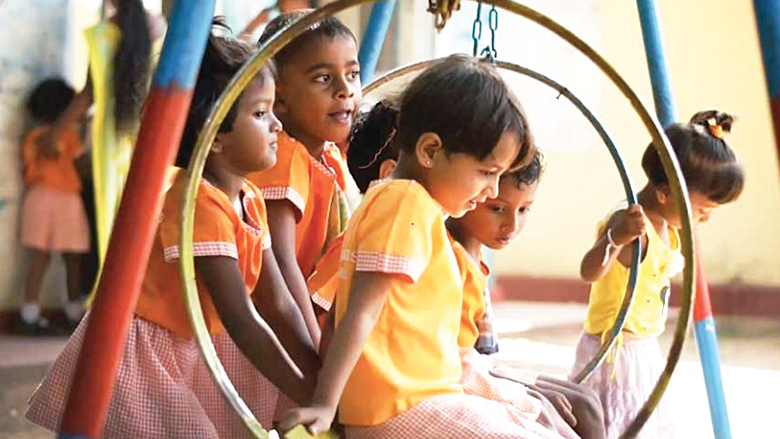
In infancy and childhood is laid the groundwork for an integrated personality in the making, in preparation for adaptation to the outside world. The malleability of the nervous system [neuroplasticity] due to its extensive growth during early childhood, considered to be the critical period for learning, offers the potential to bring about lifelong benefits in terms of social, emotional and intellectual development.
My goal in this brief article is to reflect on the essential elements [‘building blocks’] of education in early childhood which help to lay the foundation for positive outcomes in later life. It is intended to encourage conversation amongst the general readership of this important topic, especially the parents of young children, as learning begins at home.
Critical Period for learning
Early childhood usually covers the age range from infancy to about eight years of age, during which period most of the brain growth takes place. The prefrontal cortex of the brain responsible for higher cognitive functions [e. g. planning, decision making etc.] continues to mature into the mid-twenties. That isn’t to say that learning processes could not continue throughout life.
Current Community Attitudes towards Education
Let us first examine the current public attitudes towards education in general. Proficiency in reading, writing, math and science are regarded as the core academic literacies on which all other learning rests, and on which future success in life depends. The Arts and Humanities, a group of disciplines that study aspects of human society and culture, are placed lower in the hierarchy in the academic curriculum and are often considered supplementary. Their value in enhancing human ideals is often ignored. In a technologically advancing world we live in, the contribution of the study of the arts and humanities towards boosting the economy is brought into question.
The above attitude has created a highly competitive, exam driven, and hence stressful, academic environment for our children in their formative years. There are excessive demands placed upon them to achieve academically, exacerbated by parental pressure – overt or covert. Attendance at paid ‘tuition classes’, after hours, to supplement learning at school is considered essential to gain higher grades at exams, in order to be competitive in entering tertiary institutions and in enhancing career prospects. The love of learning is lost.
Many children find no time for reflection, or to read outside the curriculum to broaden their understanding about life. There is a perception in the community of a decline in literacy and sensibility in the young and their tendency to lean towards much less civilising forms of entertainment and communication, which is at the root of most of our social ills, compounded by the economic ills that currently plague us. Alarmingly, a recent survey by the College of Community Physicians of Sri Lanka has revealed that over 200 adolescents have committed suicide in 2024, which they, reportedly, attribute to their indulgence in social media. But at the heart of it is the breakdown of social order resulting in a lack of ‘meaning’ in life, as once postulated by the renowned French Sociologist, Emile Durkheim.
Family Milieu
The developing child requires the provision of certain environmental conditions, based on common principles, to complement the innate biological drive which we call instinct. Of vital importance is the family milieu, its stability and its ability to meet the child’s emotional needs. From an emotional point of view, the child needs to feel safe, and experience the contentment in the parent’s inter-relationship, in order to set the ground for learning. In addition, it helps for the parents to model the love of learning and of knowledge through communication in words and in actions.
In an ideal world, a child’s parents and teachers ought to be equally committed towards helping the child develop a love of learning. In some instances a teacher must shoulder most of the work – for instance, when parents are busy making a living or have had a limited education themselves.
Enrichment Strategies
Let us reflect on some of the enrichment strategies in early childhood education which would bring about a balance in the curriculum.
The Arts
“Engagement of children in the arts has the power to console, transform, welcome, and heal. It is what the world needs now” [Yo Yo Ma, Cellist]
The arts are commonly used as enrichment strategies in Early Childhood Education. They include music, dance, drama, and Visual and literary arts. The strengths developed through the arts during the early formative years have the potential to enhance other spheres of learning, and performance in later life. By eliciting emotions in the listener, the arts, as both Aristotle and Freud asserted, has the capacity to be therapeutic by being cathartic.
Music
Neuroscientists have shown that, due to the plasticity of the brain in young children, music training tended to enhance the auditory [hearing] pathways in the brain, and hence, the development of phonological awareness [responsiveness to contrasting sounds]. Phonological awareness is considered to be an important precursor to reading skill and the ability to rhyme. In addition, ‘Music is the language of emotions’, encouraging children to gain awareness of their own emotions in addition to making aesthetic judgements.
Drama
Research studies show that enacting stories in the classroom in comparison to dramatic performances on stage by children have several beneficial effects such as better understanding of the stories enacted and the appreciation of new stories. In addition, such classroom performances of stories enriched oral language development and reading skills, including an eagerness to read, and surprisingly, even writing skills.
Visual Arts
Engagement of children in visual art involves much more than learning the techniques of drawing and painting. Long periods of engagement in the craft provides a framework for enhancing thinking skills – to be more focussed and persistent in one’s work; to enhance the power of imagination; to generate a personal viewpoint or express a feeling state; and to encourage the child to reflect on and to make a critical judgement of their own work. Similarly, by entering into a conversation with the children after encouraging them to look closely at a piece of art, tended to heighten their observation skills. There is evidence that these habits of mind acquired from the engagement of children in visual arts could be ‘transferred’ to other areas of learning, and stand in good stead in employment in later life.
Reading
According to the British neuropsychologist, Andrew Ellis, the brain was never meant to read, in terms of human evolution: “There are no genes or biological structures specific to reading.” Reading had to be learned, requiring the integration and synchronisation of several systems of the brain acquiring a new neuronal circuitry for the purpose – perceptual, cognitive, phonemic, linguistic, emotional and motor. Reading, as it develops, aided by an environment that lures the child to read would lead to further enhancement of the cognitive capacity of the brain – an important dynamic in childhood education.
The more young children, are read to, and are engaged in conversation that flows on from stories read [‘conversational reading’], the more they begin to love books, increase their vocabulary and their knowledge of grammar, and appreciate the sounds that words generate – evidently, best predictors of later reading interest and critical thinking. Conversational reading is a technique where the parent or educator engages with the child in a conversation while reading a book, asking open-ended questions to encourage active participation and deeper comprehension, eg. entering into a dialogue about the story while reading it together.
In addition, reading enhances the child’s self-worth and personal identity [emotional experience of reading].
What better way for children to be introduced to the world that they are to be part of than to be immersed in a story that is all about beings and the environment that surrounds them? What better way for children to learn about ideas and speech patterns, how people react and interact, and how dialogue reveals more about a person than what they say, and about interpersonal relationships. Sadly, children with reading disability have a greater tendency to develop emotional and conduct disorders needing remedial support.
Children’s Literature
It is claimed that appropriate works of children’s literature, read or enacted, help the developing children build empathy and compassion – desirable human ideals that can persist through to adult life – by placing themselves in the shoes of fictional characters and simulating what the characters in the narrative are experiencing. One could argue that the same could be achieved in real life by interacting with others but does not have the advantage of having access to the inner lives of individuals as depicted in well-crafted fictional works.
There is no better way to convey moral instruction than by vicarious learning through reading. As the legendary Russian author, Leo Tolstoy, propounded in his popular monograph, ‘What Is Art?’, the value in a piece of literary art is to be judged by its ability to make the reader morally enlightened.
There is no better way for children, while gaining the aesthetic rewards of a narrative, to enhance their thinking and reasoning, generate creativity, and introduce them to a life rich in meaning.
“There are perhaps no days of our childhood we lived fully as those we spent with a favourite book…they have engraved in us so sweet a memory, so much more precious to our present judgement than what we read then with such love…”
[‘On Reading’, by Marcel Proust 1871-1922, French novelist and literary critic]
Children’s Poetry
We are endowed with a rich poetic tradition that extends as far back as the Sinhala language and its precursors. Over the centuries the lyrical content mirrored the changing socio-cultural and political landscape of our country. During the pre-independence era, there was a revival of lyrical output from men of vision aimed at enhancing the creativity and sensibility of the young, to prepare them for the challenges of a free nation, and enhance their sensibility. Foremost among this group of poets were: ‘Tibetan’ [Sikkimese] monk, Ven. S. Mahinda, Ananda Rajakaruna and Munidasa Kumaratunga. Their poems that lured the children most were about nature. Simple and well crafted, they were designed to draw children to the lap of Mother Nature, to admire her beauty and to instil in them a lasting imagery and a feeling of tranquillity. Ananda Rajakaruna’s ‘Handa’ [the moon], ‘Tharaka’ [Stars], ‘Kurullo’ [birds], ‘Ganga’ [The river]; Rev. S. Mahinda’s ‘Samanalaya’ [The Butterfly], ‘Rathriya’ [The Night]; Munidasa Kumaratunga’s ‘Morning’, which captures the breaking dawn, ‘Ha Ha Hari Hawa’ [About the Hare], are amongst the most popular. They are best recited in the original language as any attempt at translation would seriously damage their musical and lyrical qualities.
Narrative Art
Martin Wickremasinghe [1890-1976] was ahead of his time in recognising the importance of children’s literature and its positive impact on their psychosocial and intellectual development. He argued a case for establishing a tradition of children’s literature anchored in our heritage, and in keeping with the degree of maturity of the child; and that the work be presented in a simple and pleasurable form mixed with moral instruction in the right measure. He observed that a nation without children’s literature rooted in its heritage may face intellectual and moral decline. He asserted that children’s books should only be written by those who understood the developing mind.
In his publication, ‘Apey Lama Sahithyaya’ [Our Children’s Literature] Martin Wickremasinghe acknowledges past contributions to our children’s literature by prominent writers. Piyadasa Sirisena, Munidasa Kumaratunga, G. H. Perera and others transformed folk tales into prose and poetry for children. V, D, de Lanarolle was a pioneer in writing children’s stories for supplementary reading, naming his series, ‘Vinoda Katha’ [Pleasurable Stories]. Edwin Ranawaka translated children’s stories, from English to Sinhala, to suit the local readership. Martin Wickremasinghe’s own Madol Duwa, and G. B. Senanayake’s Ranarala and Surangana Katha were significant contributions to our children’s literature. Munidasa Kumaratunga took an innovative approach in producing ‘Hath Pana’ [Seven Lives], ‘Heen Seraya’ {Slow Pace], ‘Magul Kema’ [Wedding Feast] and ‘Haawage Waga’ [The Hare’s Tale] which gained immense popularity.
Despite the above, Martin Wickremasinghe argued that we have been slow in developing children’s literature of our own, although such a literary genre has been established in the west, for example, the Aesop’s Fables and the Fairy Tales of Hans Christian Anderson.
Aesop’s Fables, thought to have been narrated by a slave who lived in ancient Greece [whose identity remains obscure in history], have survived the test of time as a conveyor of values and virtues for children to reflect on, and to generate a conversation facilitated by their teacher. The allegorical tales, much admired by children [and adults!], are aimed at both entertaining and imparting moral wisdom with the use of animal characters having human attributes [Anthropomorphism] and their social interactions. The brief and lucidly told tales – 200 or more – laden with worldly wisdom, have the potential to generate a literate population, when introduced during early childhood. Let me remind you of few popular fables with their core messages: ‘The Hare and the Tortoise’ [Slow and steady wins the race]; ‘The Lion and the Mouse’ [No act of kindness, no matter how small, is ever wasted]; ‘The Cock and the Jewel’ [The value of an object lies in the eyes of the beholder]
The Fairy [fantasy] Tales of Hans Christian Andersen [1805-1875] continues to feed the imagination of growing-up children through his portrayal of unique and unforgettable characters – witches, beasts and fairies – with features of human life. The tales of the Danish master story-teller, translated into many languages, have gained universal appeal amongst children as he weaves his vastly entertaining stories such as Thumbelina, The Tin Soldier, and The Emperor’s New Clothes etc. based on fantasies with a lesson to convey. In addition to entertainment and instruction, his tales portray universal human conditions such as joy, sorrow, fear, pride, abandonment, resoluteness etc. and allow children to recognise their own feeling states, which the psychoanalysts believe is therapeutic.
The above shows that the east and west can meet on the ground of universal values, exemplified by the arts, and that human reason – the capacity of humans to think, understand and form judgement – is the true guide in life.
In sum, although reading, writing and mathematics in early childhood education are considered the core academic literacies on which other learning rests, and on which success in life depends, current research indicates that arts education through the development of certain habits of the mind could enhance academic achievement. It is thought that high arts involvement in children tend to augment their cognitive functions [eg. attention and concentration], thinking and imaginative skills, organisational skills, reflection and evaluation, which could be ‘transferred’ to other domains of the school curriculum, including science. This is in addition to the role the arts could play in enhancing interpersonal skill and emotional well-being, in conveying moral instruction, and in the exercise of empathy. As such, one could argue a case for a well-rounded system of education incorporating the arts to be introduced during early childhood.
I apologise for my ignorance in the Arts and Literature in Tamil.
Desirable Qualities of Educators
The above ideal could only be achieved through greater investment in training competent teachers in early childhood education. What ought to be the desirable qualities of an early childhood educator? It is my view that the teacher should a] have a good understanding of childhood development – physical, psychological and intellectual – and have the capacity to appreciate individual differences; b] possess ‘age-related’ conversational skills with the children – to listen and to allow free expression, with the aim of encouraging self-exploration of their work; c] have the ability to enhance children’s self-esteem while being able to set limits when necessary, within a framework of caring; d] understand the need to liaise with the parents; and, most of all, e] have a passion for educating children.
Educational Reform
Our nation is in need of a national policy on early childhood education as part of an overall plan on educational reform. It is expected that the powers that be will address a range of issues in planning of services: the inequity in access to Early Childhood Education; integration of early childhood education with the mainstream educational facilities; quality assurance and monitoring; and most importantly, greater investment in training of competent instructors in early childhood education, and creating opportunities for the teachers to be engaged in continuing education and peer review. It is hoped that the government will be able to create a framework for laying the groundwork for restructuring Early Childhood Education – a worthy cause in nation building.
Source Material
Winner, E. [2019]. How Art Works – A psychological Exploration. Oxford University Press.
Willingham, Daniel T. [2015]. Raising Kids Who Read. Jossey Bass – A Wiley Brand.
Wickremasinghe, Martin. [Second Edition 2015]. Apey Lama Sahithya [Our Children’s Literature]. Sirasa Publishers and Distributors.
Hans Christian Andersen. Andersen’s Fairy Tales. Wilco Publication 2020 Edition.
Aesop’s Fables. Wilco Publication 2020 Edition
[The writer is a retired Consultant Psychiatrist with a background of training in Adult General Psychiatry with accredited training in Child and Adolescent Psychiatry, in the UK. He is an alumnus of Thurstan College, Colombo, and the Faculty of Medicine, University of Peradeniya. Resident in Perth, Western Australia, he is a former Examiner to The Royal Australian and New Zealand College of Psychiatrists, and the recipient of the 2023 Meritorious Award of the RANZCP [WA Branch]]
by Dr. Siri Galhenage ✍️
sirigalhenage@gmail.com
Features
Where stone, memory and belief converge: Thantirimale’s long story of civilisation
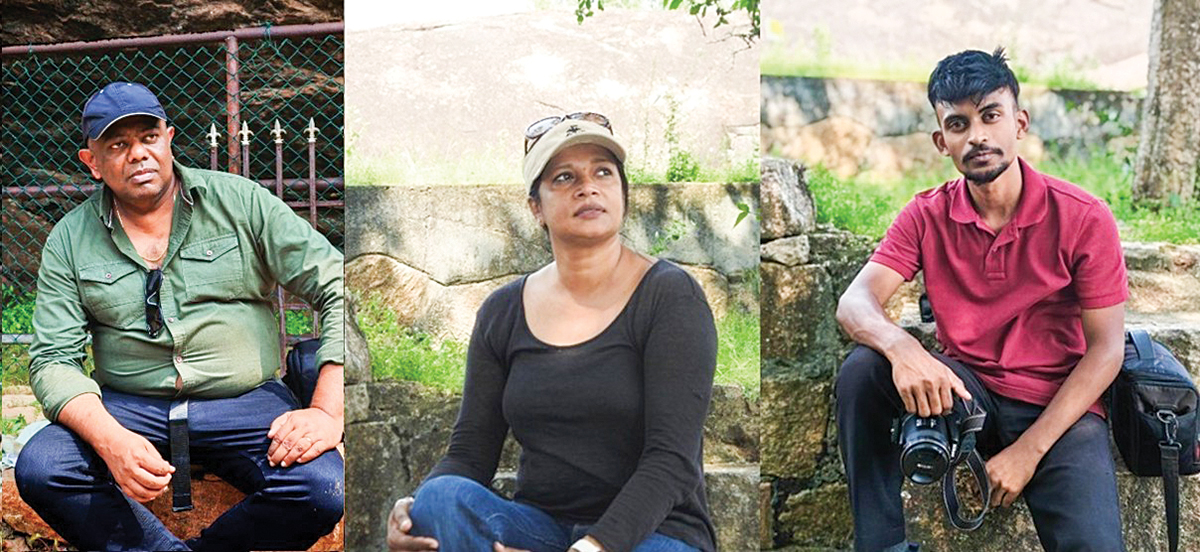
At the northern boundry of Anuradhapura, where the Malwathu Oya curves through scrubland and forest and the wilderness of Wilpattu National Park presses close, the vast rock outcrop of Tantirimale rises quietly from the earth.
Spread across nearly 200 acres within the Mahawilachchiya Divisional Secretariat Division, this ancient monastic complex is more than a place of worship. It is a layered archive of Sri Lanka’s deep past — a place where prehistoric life, early Buddhist devotion, royal legend and later artistic traditions coexist within the same stone landscape.
“Thantirimale is not a site that belongs to a single period,” says Dr. Nimal D. Rathnayake, one of the principal investigators who has been studying the area together with Ayoma Rathnayake and Eranga Sampath Bandara. “What we see here is continuity — people adapting to the same environment across thousands of years, leaving behind traces of belief, survival and creativity.”
Traditionally, the Thantirimale temple is believed to date back to the third century BC, placing it among the earliest Buddhist establishments in Sri Lanka.
The Mahavansa records that civilisation in this region developed following the arrival of Prince Vijaya, whose ministers were tasked with establishing settlements across the island. One such settlement, Upatissagama, founded by the minister Upatissa, is often identified as the ancient precursor to present-day Thantirimale.
Yet archaeology offers a deeper and more complex story. Excavations conducted in and around the rock shelters reveal that indigenous tribal communities lived at Thantirimale long before the rise of the Anuradhapura kingdom. These early inhabitants — likely ancestors of today’s Veddas — used the caves as dwellings, ritual spaces and meeting points thousands of years before organised monastic life took root.
“The rock shelters were not incidental,” Dr. Rathnayake explains. “They were deliberately chosen spaces — elevated, protected and close to water sources. This landscape offered everything prehistoric communities needed to survive.”
Over centuries, Thantirimale accumulated not only material remains, but also names and legends that reflect shifting political and cultural realities.
During the reign of King Devanampiyatissa, the area was known as Thivakkam Bamunugama, suggesting a Brahmin presence and ritual importance. Another strand of tradition links Thantirimale to Prince Saliya and Ashokamala, the royal lovers exiled for defying caste conventions.
Folklore holds that they lived in this region for a time, until King Dutugemunu eventually pardoned them and presented a golden butterfly-shaped necklace — the Tantiri Malaya — believed to have given the site its present name. Linguistic traditions further suggest an evolution from “Thangaathirumalai”, pointing to South Indian cultural influences.
Tantirimale also occupies a revered place in Buddhist memory. According to tradition, Sanghamitta Maha Theri rested here for a night while transporting the sacred sapling of the Jaya Sri Maha Bodhi from Jambukola to Anuradhapura. That brief pause transformed the rock into sacred ground, forever linking Tantirimale to one of the most powerful symbols of Sri Lankan Buddhism.
Among the most striking monuments at the site is the unfinished Samadhi Buddha statue, carved directly from a massive cube-shaped rock.
- A greater Portion of the Painted Surface of Cave NO.2
- Leatherback Sea Turtle
- The Crocodile or Land Monitor
Standing about eight feet tall, the statue bears a remarkable resemblance to the celebrated Samadhi Buddha of the Polonnaruwa Gal Viharaya. Guardian deities flank the central figure, while behind it a dragon pearl is supported by two lions — a motif associated with protection, sovereignty and cosmic balance. Dwarf figures decorate the seat, adding layers of symbolic meaning and artistic refinement.
“What is extraordinary here is the ambition of the sculpture,” says Dr. Rathnayake. “This was clearly intended to be a monumental work.” Excavations around the statue have uncovered stone pillars and evidence of a protective roof, indicating that artisans worked under shelter as they shaped the figure.
The statue’s incomplete state is most plausibly explained by the foreign invasions and political instability that marked the later Anuradhapura period. Stylistic features suggest that the work continued into, or was influenced by, the Polonnaruwa period, underscoring Thantirimale’s enduring importance long after Anuradhapura’s decline.
Nearby lies another monumental expression of devotion — the reclining Buddha statue, measuring approximately 45 feet in length. Unlike the Samadhi statue, this figure has been detached from the living rock and is dated to the late Anuradhapura period. Its scale and proportions closely resemble Polonnaruwa sculpture, reinforcing the idea of a continuous artistic and religious tradition that transcended shifting capitals and dynasties.
Yet the most ancient and fragile heritage of Thantirimale is found not in its monumental statues, but in two adjacent caves within the monastic complex. Their walls still bear the fading traces of prehistoric rock paintings dating back nearly 4,000 years. First recorded by John Still in 1909, these paintings were later documented and analysed by scholars such as Somadeva.
The paintings include human figures, animals, geometric patterns and symbolic motifs, suggesting ritual practices, storytelling and shared cultural memory. “If Tantirimale functioned as a common meeting place for independent territorial groups,” Dr. Rathnayake observes, “then these images may represent a shared visual narrative — a way of communicating identity and belief beyond spoken language.”
One of the caves, previously known to contain both human and animal figures, has deteriorated significantly and now requires urgent conservation intervention. The second cave, however, offers a rare and intriguing glimpse into prehistoric ecological awareness.
Among the animal figures are two images believed to represent a Leatherback Sea Turtle and either a crocodile or land monitor, measuring 18 and 13 centimetres respectively. The turtle depiction is particularly striking for its anatomical accuracy — the ridges on the carapace are clearly visible, aligning closely with known herpetological characteristics.
“These details suggest close observation of nature,” says Dr. Rathnayake. Archaeological evidence supports this interpretation. According to earlier studies, sea turtles were transported to Anuradhapura as early as 800 BC. During the Gedige excavations in 1985, bones of the Olive Ridley sea turtle were discovered, possibly used for ornaments or utilitarian objects. Images of land monitors and crocodiles are common in dry-zone rock art, reflecting both ecological familiarity and subsistence practices, as Veddas are known to have consumed the flesh of land monitors.
Today, Thantirimale stands at a critical crossroads. Encroaching vegetation, weathering stone, fading pigments and increasing human pressure threaten a site that encapsulates millennia of human adaptation, belief and artistic expression. For Dr. Rathnayake and his team, the need for protection is urgent.
“Thantirimale is not just an archaeological site or a temple,” he says. “It is a living record of how humans have interacted with this landscape over thousands of years. Preserving it is not simply about protecting ruins — it is about safeguarding the long memory of this island.”
In the quiet of the rock shelters, where prehistoric hands once painted turtles, hunters and symbols of meaning, Thantirimale continues to whisper its story — a story written not in ink or inscription, but in stone, pigment and belief.
By Ifham Nizam ✍️
Features
Coaching legend Susantha calls time on storied career
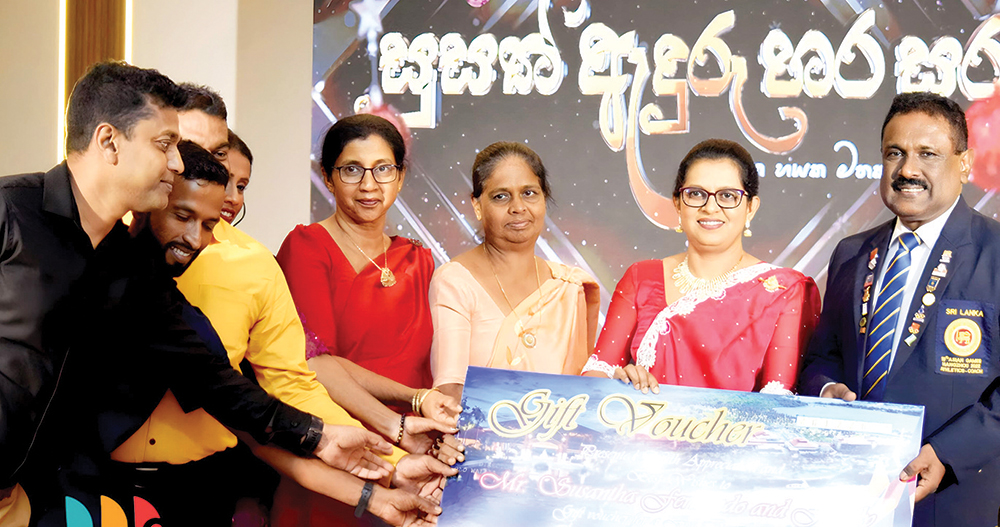
Veteran athletic coach Susantha Fernando called time on his illustrious career in the state service recently. Fernando, who began his career as a physical education teacher was the Assistant Director of Education (Sports and Physical Education- Central Province Sports Schools) at the time of his retirement last month.
Susantha was responsible for transforming the then little known A. Ratnayake Central, Walala, into an athletics powerhouse in the schools sports arena. His sheer commitment in nurturing the young athletes at Walala not only resulted in the sports school winning accolades at national level but also produced champions for Sri Lanka in the international arena.
These pictures are from the event to launch his autobiography Dekumkalu Kalunika and the felicitation ceremony organised by Tharanga Gunaratne, Director of Education at Wattegama Zone to felicitate him following his retirement.
Former Walala athletes, his fellow officials and a distinguished gathering including former Director of Education Sunil Jayaweera were gathered at the venue to felicitate him.
- Susantha Fernando with his family members
- Susantha with his wife, Ranjani, sons, Shane and Shamal and daughter Nethmi
- Tharanga Gunaratne, Director of Education at Wattegama Zone addressing the gathering
- Sisira Yapa, who delivered the keynote address at the book launch
- Former Director of Sports of the Ministry of Education Sunil Jayaweera
- Susantha’s first international medallist marathoner D.A. Inoka
- A dance item in progress
- Susantha Fernando with his wife Ranjani
- Susantha with his mother
-

 Editorial6 days ago
Editorial6 days agoIllusory rule of law
-

 Features6 days ago
Features6 days agoDaydreams on a winter’s day
-

 Features6 days ago
Features6 days agoSurprise move of both the Minister and myself from Agriculture to Education
-

 Features5 days ago
Features5 days agoExtended mind thesis:A Buddhist perspective
-

 Features6 days ago
Features6 days agoThe Story of Furniture in Sri Lanka
-
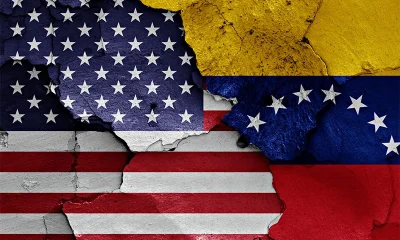
 Opinion4 days ago
Opinion4 days agoAmerican rulers’ hatred for Venezuela and its leaders
-
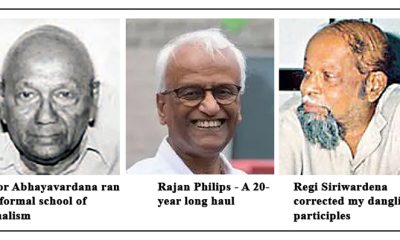
 Features6 days ago
Features6 days agoWriting a Sunday Column for the Island in the Sun
-

 Business2 days ago
Business2 days agoCORALL Conservation Trust Fund – a historic first for SL


